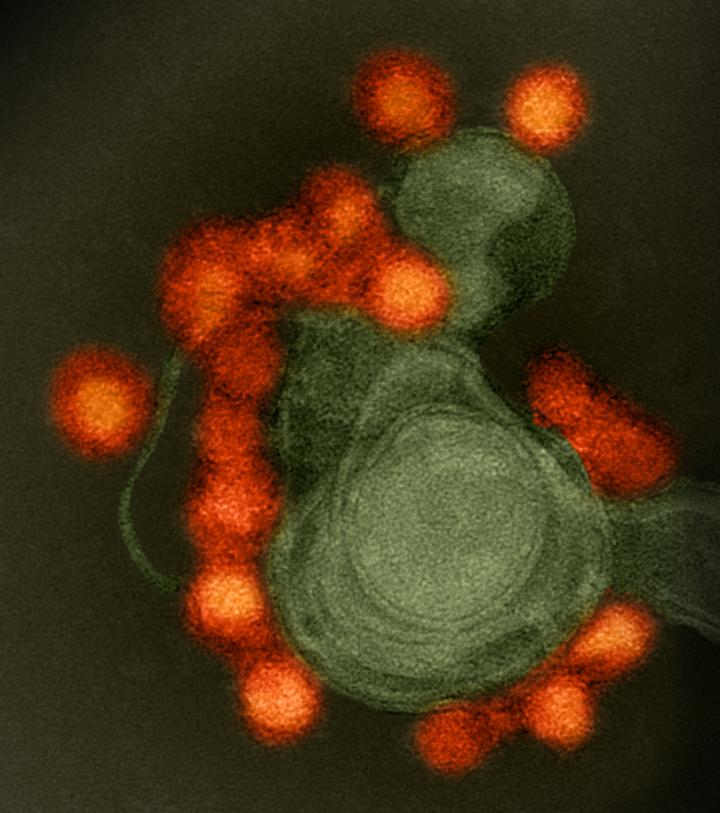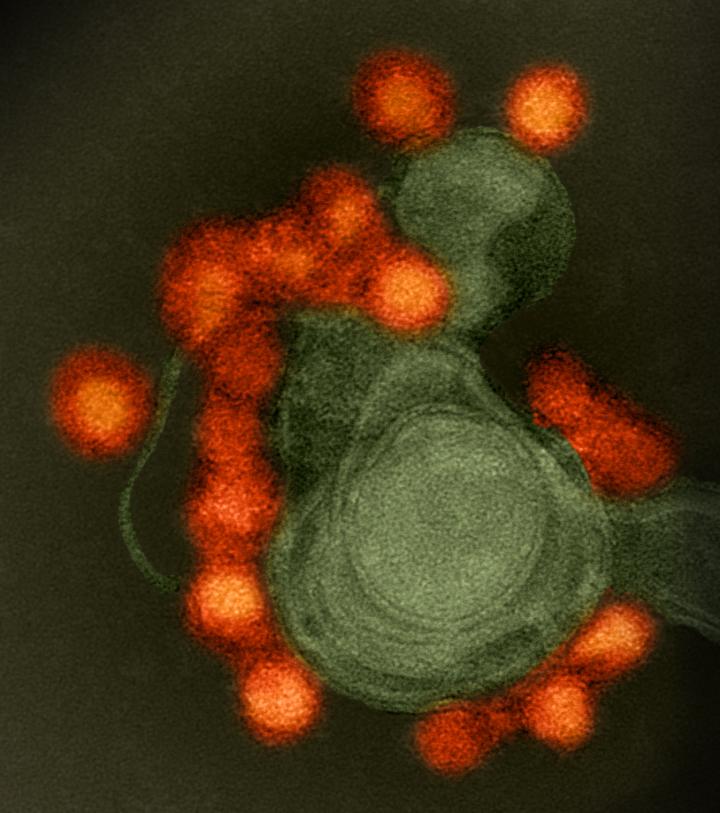
In research that could inform prophylactic treatment approaches for pregnant women at risk of Zika virus infection, investigators conducted experiments in mice and identified six Zika virus antibodies, including four that neutralize African, Asian and American strains of the mosquito-borne virus. The team, supported by the National Institute of Allergy and Infectious Diseases (NIAID), part of the National Institutes of Health, also developed atomic-level x-ray crystal structure images showing four of the antibodies in complex with three distinct regions (epitopes) of a key Zika protein. Structural information about antibody-epitope interactions is useful to vaccine developers because it provides a pathway for designing vaccines that can induce antibodies directed toward the critical epitopes. The research group headed by Michael S. Diamond, M.D., Ph.D., and Daved H. Fremont, Ph.D., of Washington University School of Medicine also found that two of the newly identified Zika antibodies could protect mice from Zika infection.
Currently there are no specific treatments for Zika virus infection, and women who become infected while pregnant are at risk of having babies with severe congenital abnormalities. In their study, the scientists first infected mice with Zika virus and allowed the animals' immune systems to produce anti-Zika antibodies. They identified six different antibodies that recognized a particular Zika protein, the envelope or E protein. Of those, four were shown in test-tube experiments to inhibit an Asian strain of Zika virus from infecting cells. In addition to inhibiting the Asian strain, two of the four antibodies also neutralized Zika virus strains derived from Africa and South America (Brazil). In additional experiments, the scientists first prophylactically treated mice with either the most potent Zika neutralizing antibodies or with antibodies directed toward an unrelated Chikungunya virus, and a day later exposed the mice to Zika virus. Mice given Chikungunya antibodies developed high levels of Zika virus in their blood and lost weight, and most died. In contrast, mice given Zika antibodies as a preventive treatment developed lower levels of Zika virus and did not develop any clinical signs of infection.
The researchers note that the key question of whether Zika neutralizing antibodies could protect pregnant women and their developing fetuses remains to be answered. Due to significant differences in gestational features between mice and humans, antibody protection studies may require experiments in other mammals, such as non-human primates, that allow for optimal transfer of antibodies from the mother to the fetus, as occurs in humans, they note.
###
The study team included NIAID scientists Theodore C. Pierson, Ph.D., and Kimberly A. Dowd, Ph.D., of the Laboratory of Viral Diseases.
ARTICLE:
H Zhao et al. Structural basis of Zika virus specific antibody protection. Cell DOI: 10.1016/j.cell.2016.07.020 (2016).
WHO:
NIAID Director Anthony S. Fauci, M.D., and Dr. Pierson are available for comment.
CONTACT:
To schedule interviews, please contact Anne A. Oplinger, (301) 402-1663, [email protected]
This research was supported by the following NIH grants and contracts: R01 AI073755, R01432 AI104972, HHSN272201400018C, HHSN272201200026C, T32 AI007163 and R25 435 HG006687.
NIAID conducts and supports research–at NIH, throughout the United States, and worldwide–to study the causes of infectious and immune-mediated diseases, and to develop better means of preventing, diagnosing and treating these illnesses. News releases, fact sheets and other NIAID-related materials are available on the NIAID website.
About the National Institutes of Health (NIH): NIH, the nation's medical research agency, includes 27 Institutes and Centers and is a component of the U.S. Department of Health and Human Services. NIH is the primary federal agency conducting and supporting basic, clinical, and translational medical research, and is investigating the causes, treatments, and cures for both common and rare diseases. For more information about NIH and its programs, visit http://www.nih.gov/.
NIH…Turning Discovery Into Health®
Media Contact
Anne A. Oplinger
[email protected]
301-402-1663
@NIAIDNews
http://www.niaid.nih.gov





